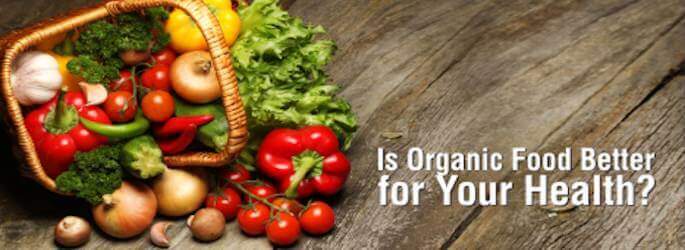
In today’s health-conscious world, the debate between health and organic food continues to spark curiosity and controversy. People are increasingly concerned about their dietary choices and their impact on overall well-being. But what exactly does “health” mean, and how does organic food fit into the equation?
Here, we will delve into the intricate relationship between health and organic food, shedding light on the scientific evidence, exploring the potential benefits, and addressing common misconceptions.
Defining Health
To start our exploration, we need to understand what health truly entails. We will dive into the various aspects of health, including physical, mental, and emotional well-being. By examining the interconnectedness of these dimensions, we can appreciate the importance of a balanced and nutritious diet in maintaining optimal health.
Organic Food Demystified
In this section, we will unravel the concept of organic food and what sets it apart from conventionally grown produce. We’ll delve into the stringent regulations and certifications that organic food must adhere to, ensuring minimal pesticide use, genetic modification, and synthetic additives. By understanding the principles behind organic farming, we can gain insight into its potential impact on our health.
Nutritional Content: Organic vs. Conventional
One of the key aspects often debated is the nutritional content of organic food compared to conventionally grown counterparts. We’ll examine scientific studies that have explored the differences in nutrient composition, antioxidant levels, and potential health benefits. By evaluating the evidence, we can determine whether organic food offers any significant advantages in terms of nourishment.
| Food Item | Nutrient | Organic | Conventional |
|---|---|---|---|
| Apples | Vitamin C | Higher | Lower |
| Fiber | Higher | Lower | |
| Pesticide Residues | Lower | Higher | |
| Antioxidants | Higher | Lower | |
| Spinach | Iron | Similar | Similar |
| Vitamin A | Similar | Similar | |
| Vitamin K | Higher | Lower | |
| Nitrates | Lower | Higher | |
| Chicken | Omega-3 Fatty Acids | Higher | Lower |
| Antibiotic Residues | Lower | Higher | |
| Growth Hormones | None | Present | |
| Pesticide Residues | None | Present | |
| Tomatoes | Vitamin C | Similar | Similar |
| Vitamin E | Higher | Lower | |
| Lycopene | Similar | Similar | |
| Pesticide Residues | Lower | Higher | |
| Carrots | Beta-carotene | Similar | Similar |
| Vitamin K | Higher | Lower | |
| Pesticide Residues | Lower | Higher | |
| Nitrate Levels | Lower | Higher | |
| Salmon | Omega-3 Fatty Acids | Higher | Lower |
| PCBs and Mercury | Lower | Higher | |
| Antibiotic Residues | Lower | Higher | |
| Growth Hormones | None | Present |
The Pesticide Predicament
Pesticides have long been a concern when it comes to food safety. We’ll delve into the potential health risks associated with pesticide residues on conventionally grown produce, contrasting them with the lower pesticide exposure associated with organic food. This section will shed light on the importance of making informed choices regarding pesticide consumption and its potential implications for our health.
Environmental Impact and Health
The health of our planet is intricately tied to our own well-being. Organic farming practices prioritize sustainability, biodiversity, and soil health. We’ll explore the environmental impact of conventional agriculture, including pesticide runoff, soil degradation, and greenhouse gas emissions. By considering the broader ecological implications, we can better understand the relationship between organic food, environmental stewardship, and our own health.
Making Informed Choices
In the final section, we’ll provide practical tips and guidance for making informed decisions about our food choices. We’ll emphasize the importance of a balanced diet, incorporating organic food when feasible, and prioritizing locally sourced, whole foods. By focusing on mindful eating habits and considering individual health needs, we can strike a balance that supports both personal well-being and sustainability.
Conclusion:
The debate between health and organic food is complex and multifaceted. By unraveling the science behind nourishment, we have explored the different dimensions of health and the potential benefits associated with organic food consumption. While organic food may not be a panacea, it offers a valuable option for individuals seeking to prioritize their health and make sustainable choices. Ultimately, the decision rests with each individual to find a dietary approach that aligns with their values and goals for a healthy and fulfilling life.









